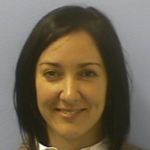Link to Pubmed [PMID] – 27773780
Travel Med Infect Dis 2016 Nov - Dec;14(6):551-560
BACKGROUND: Staphylococcus aureus is the most common cause of Skin and Soft Tissue Infections (SSTIs) in the community in the United States of America. Community Health Centers (CHC) serve as primary care providers for thousands of immigrants in New York.
METHODS: As part of a research collaborative, 6 New York City-area CHCs recruited patients with SSTIs. Characterization was performed in all S. aureus isolates from wounds and nasal swabs collected from patients. Statistical analysis examined the differences in wound and nasal cultures among immigrant compared to native-born patients.
RESULTS: Wound and nasal specimens were recovered from 129 patients and tested for antibiotic susceptibility. 40 patients were immigrants from 15 different countries. Although not statistically significant, immigrants had lower rates of MRSA infections (n = 15) than did native-born participants, and immigrants showed significantly higher rates of MSSA wound cultures (n = 11) (OR = 3.5, 95% CI: 1.3, 9.7).
CONCLUSIONS: In our study, immigrants were more likely to present with SSTIs caused by MSSA than US-born patients. Immigants also reported lower frequencies of antibiotic prescription or consumption in the months prior to SSTI infection. This suggests that antibiotic resistance may vary regionally and that immigrants presenting with SSTIs may benefit from a broader range of antibiotics.
